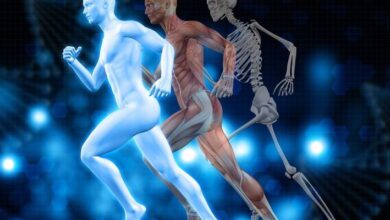General Mechanism of Enzymes MCQs with Answers

General Mechanism of Enzymes MCQs assist students in comprehending how enzymes catalyze biochemical reactions, including enzyme-substrate complex, activation energy, and the factors influencing enzyme activity. These Biology MCQs delve into important concepts such as the lock-and-key model, induced fit hypothesis, enzyme inhibition, and coenzymes. Understand the influence of temperature, pH, and substrate concentration on enzyme kinetics, as well as industrial and medical applications of enzymes. Free enzyme mechanism quizzes designed for MDCAT, CSS, and competitive exams help to increase knowledge of enzymology to score high in biological and biochemical sciences exams.
| General Mechanism The general mechanism of enzymes refers to catalysis of biochemical reactions whereby the activation energies required for a reaction to occur are lowered. Enzymes are specialized proteins which catalyze chemical reactions in biological systems. This is the basis of all life processes. Enzymes catalyze their reactions through a very specific interaction with their substrates. This starts when a substrate binds to the active site of the enzyme, the specific area of the enzyme with a shape uniquely designed to take the shape of the substrate. This produces an enzyme-substrate complex that stabilizes the reaction transition state. That is how the enzymes reduce the activation energy of the reaction. It then can occur faster than it otherwise could have. Once this reaction gets underway the enzyme catalyses substrates into products. Those products then leave the enzyme returning it to its original state and leave it free to catalyse further reactions. This catalytic cycle can be repeated many times and therefore, enzymes are highly efficient. Temperature, pH and other factors concerning the presence of inhibitors or activators affect enzymes. Inhibitors decrease the activity level of enzymes because they bind to the enzyme taking away the active site. Activators increase the level of enzymatic activity by improving the binding capacity of the enzyme for substrates. Knowledge of the overall mechanism of enzymes is valuable in fields such as biochemistry, pharmacology, and biotechnology. It leads to designing enzyme-based therapies and improvements in industrial processes with the development of medicines. |
General Mechanism of Enzymes Online Quiz
By presenting 3 options to choose from, General Mechanism of Enzymes Quiz which cover a wide range of topics and levels of difficulty, making them adaptable to various learning objectives and preferences. You will have to read all the given answers of General Mechanism of Enzymes Questions and Answers and click over the correct answer.
- Test Name: General Mechanism of Enzymes MCQ Quiz Practice
- Type: Quiz Test
- Total Questions: 40
- Total Marks: 40
- Time: 40 minutes
Note: Answer of the questions will change randomly each time you start the test. Practice each quiz test at least 3 times if you want to secure High Marks. Once you are finished, click the View Results button. If any answer looks wrong to you in Quizzes. simply click on question and comment below that question. so that we can update the answer in the quiz section.
Download Certificate of Quiz General Mechanism of Enzymes
On the end of Quiz, you can download the certificate of the quiz if you got more than 70% marks. Add a certificate to your job application or social profile (like LinkedIn) and get more job offers.
If you are interested to enhance your knowledge regarding English, Physics, Chemistry, and Computer please click on the link of each category, you will be redirected to dedicated website for each category.




